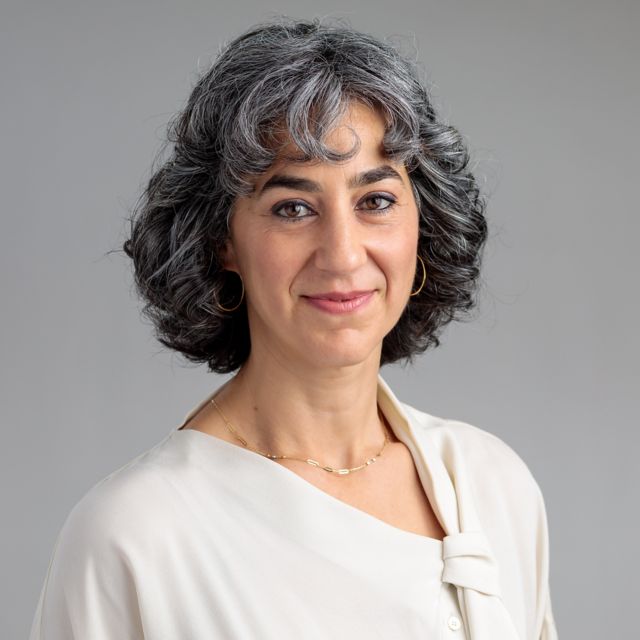
Maysoun is a senior research scientist with 20 years of experience as a public health practitioner and health care researcher. She is motivated by an interest in increasing participation and inclusion of diverse voices and viewpoints in health care policies and research. Recently, she has contributed to evaluations of health care innovations that are part of delivery system and payment reforms, including health information technology initiatives.
At NORC, Maysoun has worked on health equity and social determinants of health through projects with various federal agencies, including Centers for Medicare and Medicaid Services Office of Minority Health and the Office of the Assistant Secretary for Planning and Evaluation. With funding from The Pew Charitable Trust and The Kresge Foundation, she led research on reforms or approaches toward more accessible and equitable civil justice for all people in the United States, available in the report Perspective on Transforming Civil Justice in the United States. Maysoun is currently supporting Morehouse School of Medicine (MSM) in the evaluation of the National COVID-19 Resiliency Network (NCRN), an MSM/ Department of Health and Human Services Office of Minority Health initiative that seeks to mitigate the disproportionate impact of COVID-19 on people from diverse racial and ethnic groups, rural areas, or who are at increased risk. She also leads evaluation activities for the Centers for Disease Control and Prevention Center for State, Tribal, Local, and Territorial Support.
In previous work at the New York Academy of Medicine and the New York Immigration Coalition (NYIC), Freij assessed community health care needs, patient satisfaction in primary care settings, impacts of care coordination on quality of life, civic engagement of older adults, and barriers to health care due to lack of insurance and limited English proficiency. At the NYIC, she coordinated a standing workgroup of immigrant serving organizations and civil legal advocates on campaigns to improve immigrants’ access to health care.
Quick Links
Education
PhD
Emory University
MPH
Emory University
BA
University of Chicago
Publications
-
WATCH: Jim Neumeister on Equity-Focused Education Research
August 28, 2024
-
Live Crime Tracker Shows Major Crime Declines in First Half of 2024 with Local Variability
Press Release | August 26, 2024
-
City-Funded Preschool Helps Alleviate Shortage, Improves Child & Family Outcomes
NORC Article | August 22, 2024
-
U.S. History Teachers Report Little Outside Interference Despite Political Polarization
NORC Article | August 19, 2024
-
“Evaluation of Pennsylvania Community Violence Intervention Programs: PCCD VIP Grants Survey Report”
Project Report | August 15, 2024
-
“Evaluation of Pennsylvania Community Violence Intervention Programs - PCCD VIP Grants Survey Report: Executive Summary”
Project Report | August 15, 2024
-
NORC Evaluation Finds City-Funded Preschool Helps Alleviate Shortage, Improves Child & Family Outcomes
Press Release | August 12, 2024
-
WATCH: Susan Paddock on AI & Equity
August 7, 2024